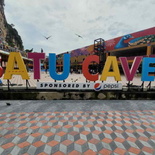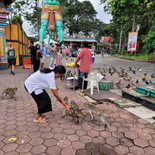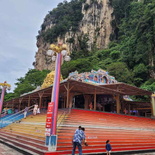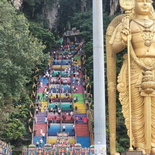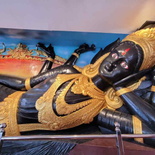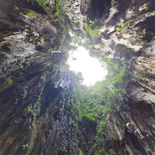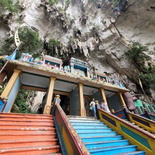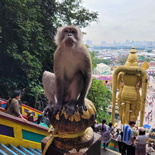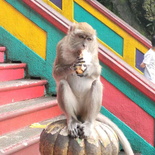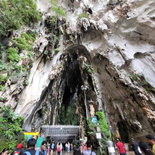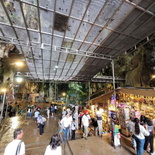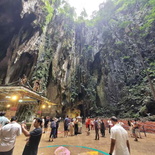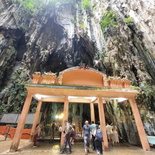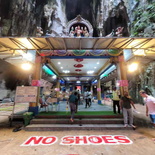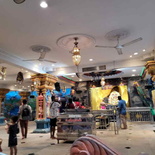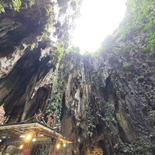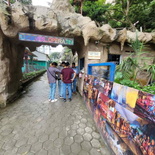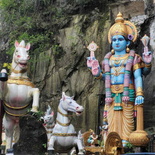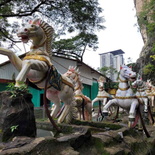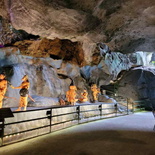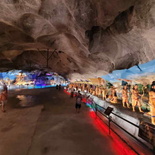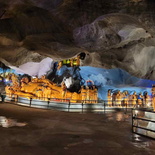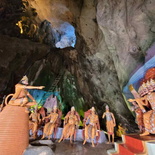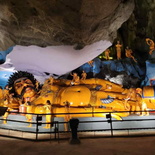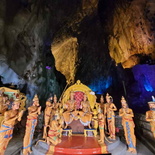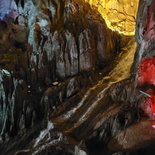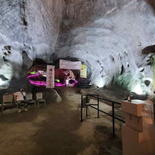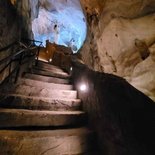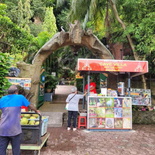The Batu Caves, located in Gombak, Selangor, Malaysia, is a must-visit destination when you are in Kuala Lumpur for its stunning sights and cultural significance when you are in the Malaysian Capital city. The natural limestone caves are easily accessible through train or Grab as the two main transportation options.
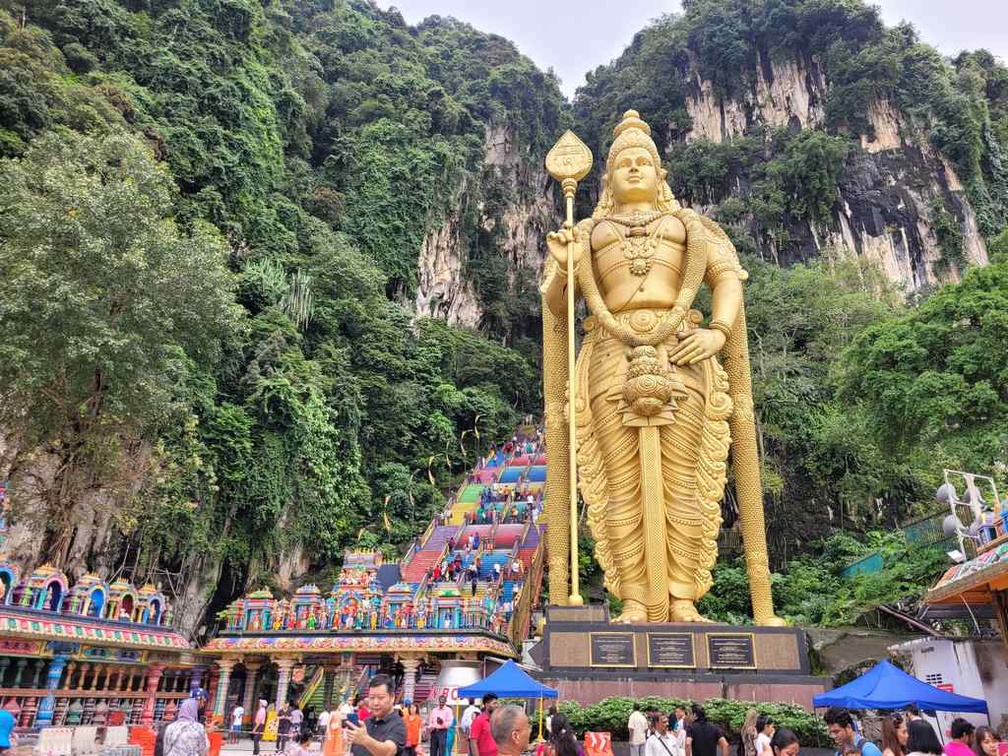
Taking the train offers tad a more traditional and somewhat rustic scenic route. You can take a KTM train (Blue Line) departing from KL Sentral Station, heading northbound, for approximately RM3 (~1 SGD). The train journey takes about 40 minutes. Alternatively, a Grab ride from central Kuala Lumpur costs around RM17 (~5.30 SGD) and takes about 20 minutes.
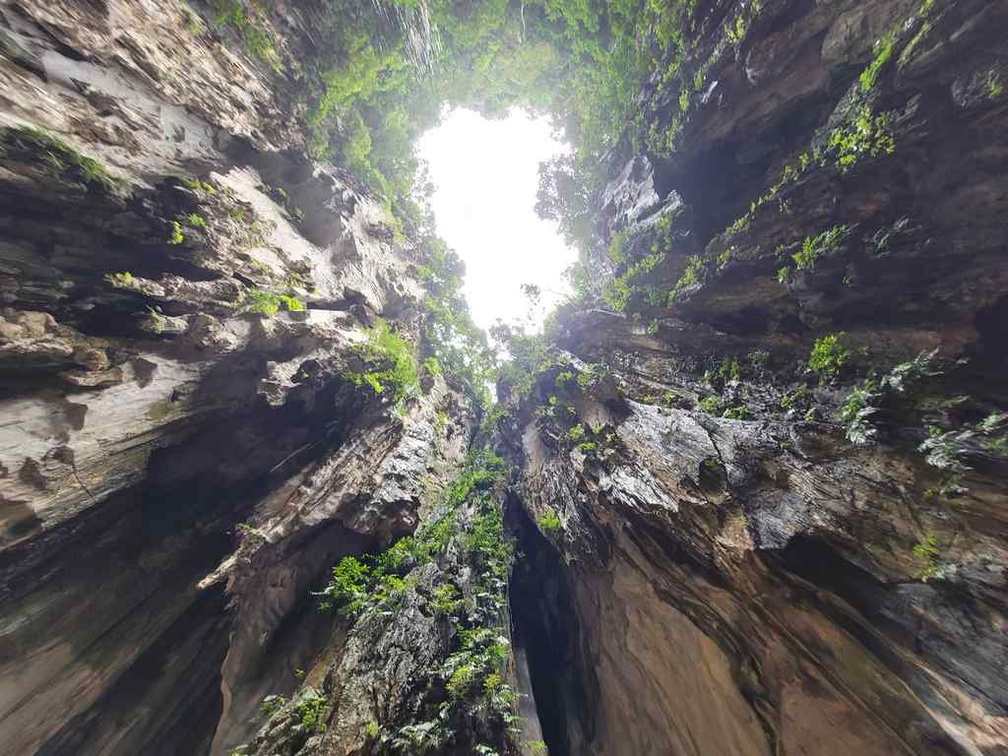
You can see the towering Batu Caves hill with it’s chiseled vertical walls as you approach your destination. There, a small village and large parking area reside which is more touristy than rustic. You can find several hawkers selling their wares from food, drinks, souvenirs.
Interestingly, some shops sell bird seeds and bananas for feeding the animals. However, this practice may make the animals overly reliant on visitors. Feeding can also lead to aggression among the animals, particularly the monkeys, when they see food. As a result, visitors are advised to observe the wildlife without engaging in feeding.
Murugan temple and 272 step climb
Your journey begins with the striking sight of a towering 42.7 meter-tall golden statue of Lord Arulmigu Murugan Statue, the Hindu God of war, standing at the entrance archway into the caves. A short walk from the carpark brings you to the highlight of your visit.
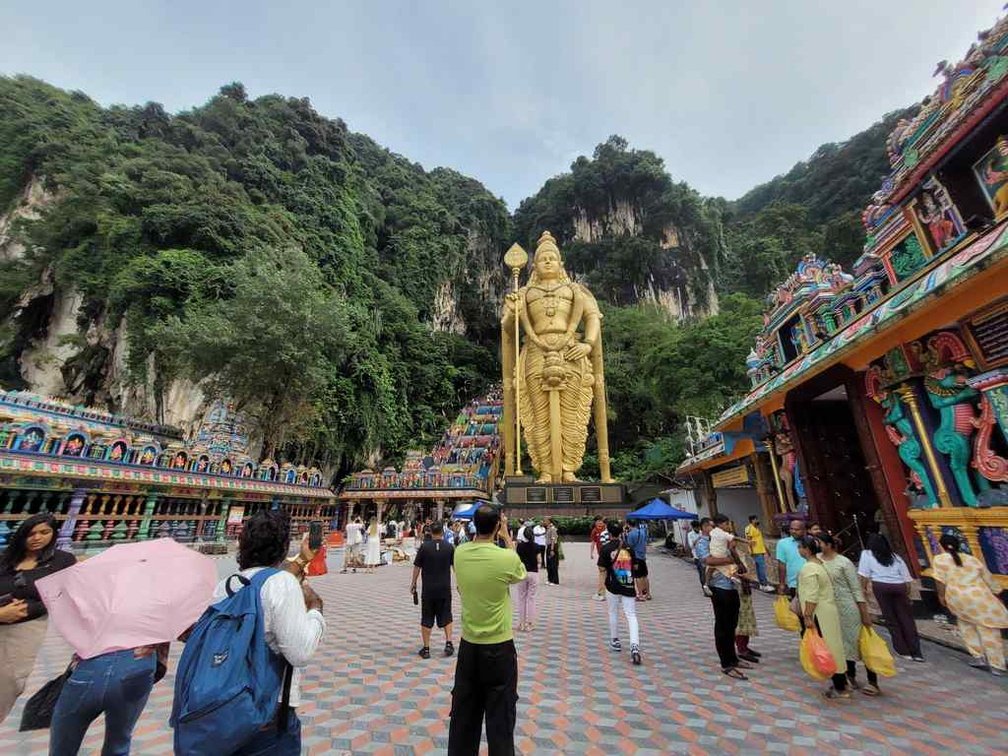
A vast courtyard and a colourful Batu Caves sign greets you. Adjacent to the main entrance, you’ll find the iconic rainbow-colored stairs leading up to the cave’s entrance. There are also a couple of temples here you can visit with one having a giant reclining Buddha within.
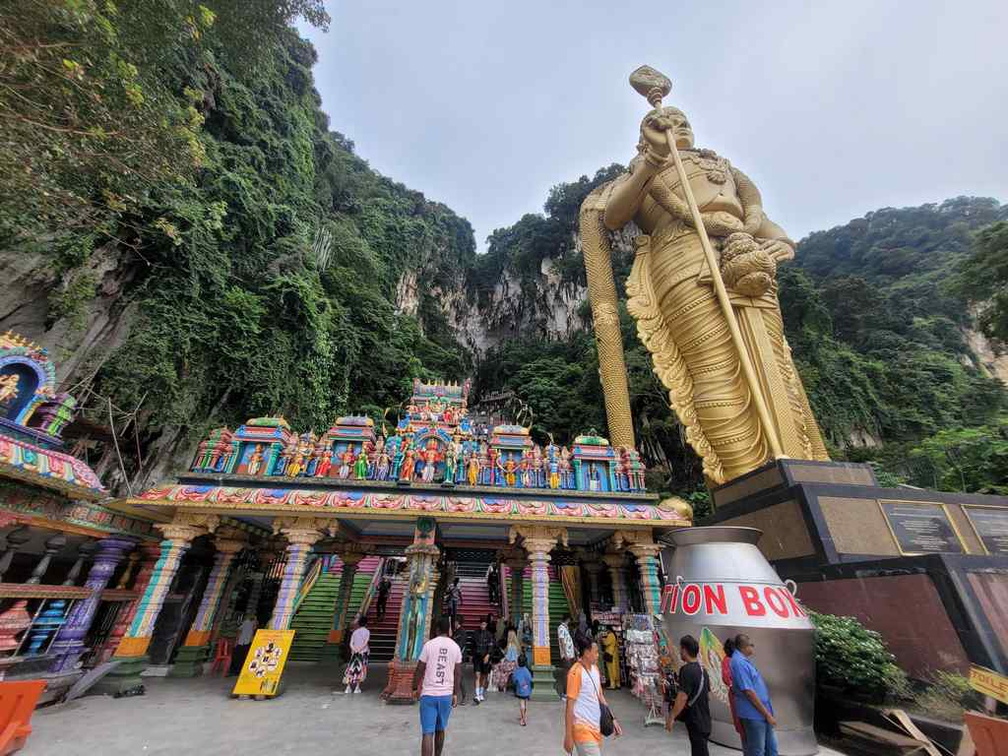
Background of the Murugan temple
Furthermore, to get up to the caves, you have to climb up 272 colourfully painted steps into the cave temple grounds. On some history, the temple existed for a long time since 1891. In 1878, the caves were discovered by American naturalist William Hornaday. K. Thamboosamy, an Indian Tamil trader. He promoted the cave complex as a site of Hindu worship, one dedicated to Lord Murugan.
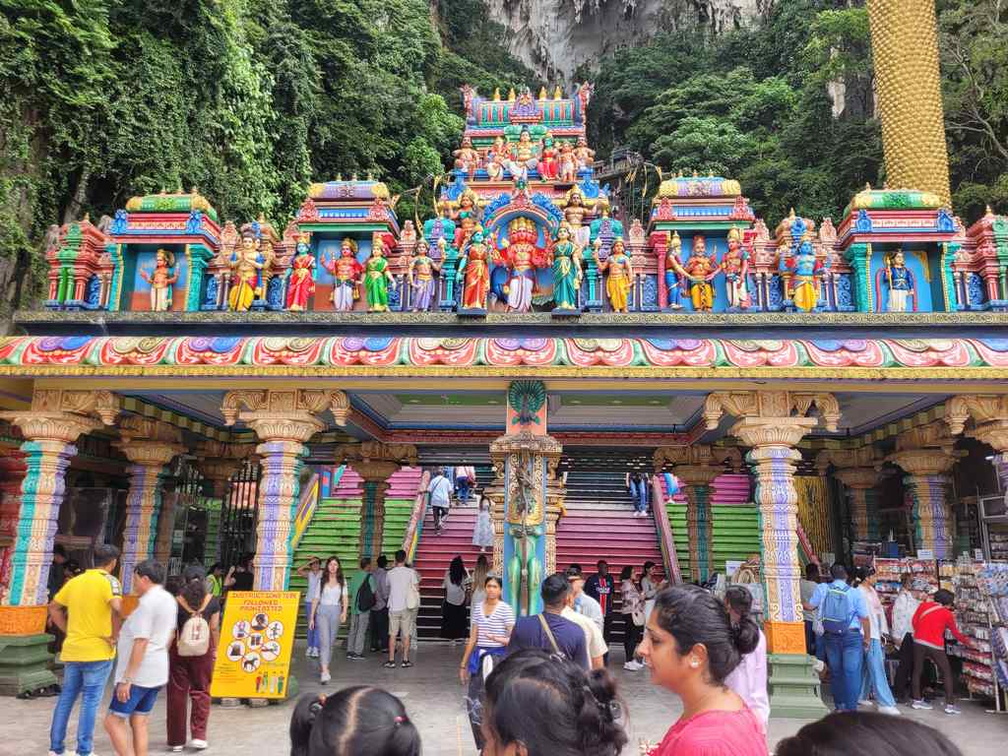
Following its completion it the site of annual Thaipusam celebrations which started since 1892. Also, on 1920, 272 wooden steps where installed to make getting up easier for Thaipusam devotees carrying heavy kavadis and milk offerings. The steps were casted in concrete with 272 steps on 1940.
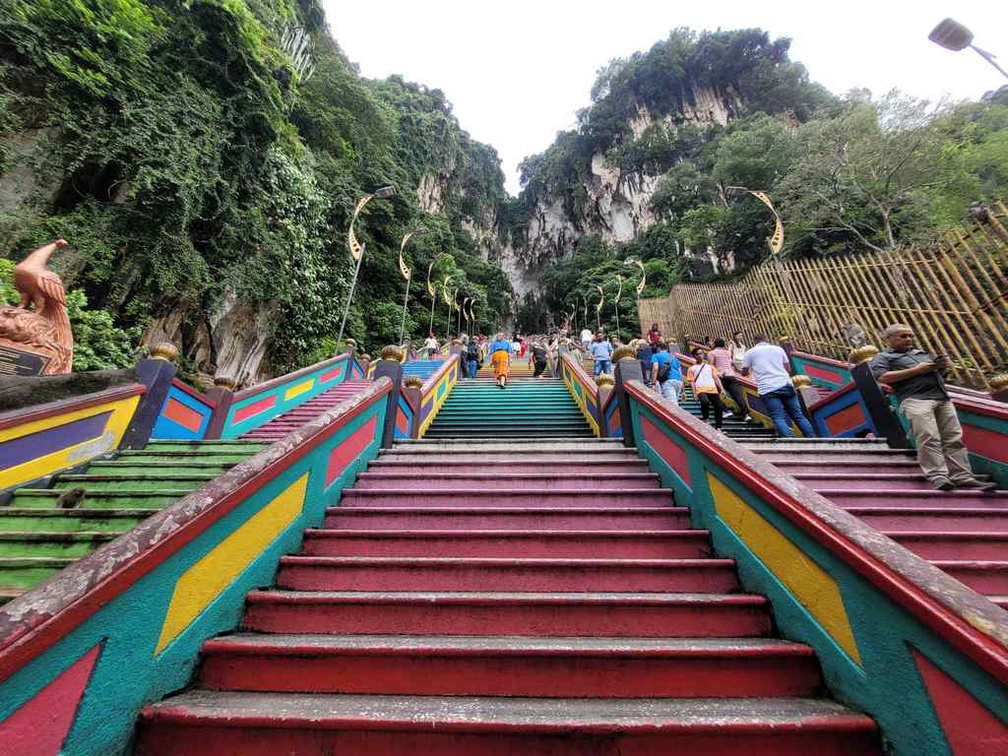
Also, the staircase are divided into three parallel flights, is steep and provides a good workout as you climb to the top. Reaching the summit rewards, you with panoramic views of the surrounding area. Another entrance archway greets you at top which follows on into the cave complex.
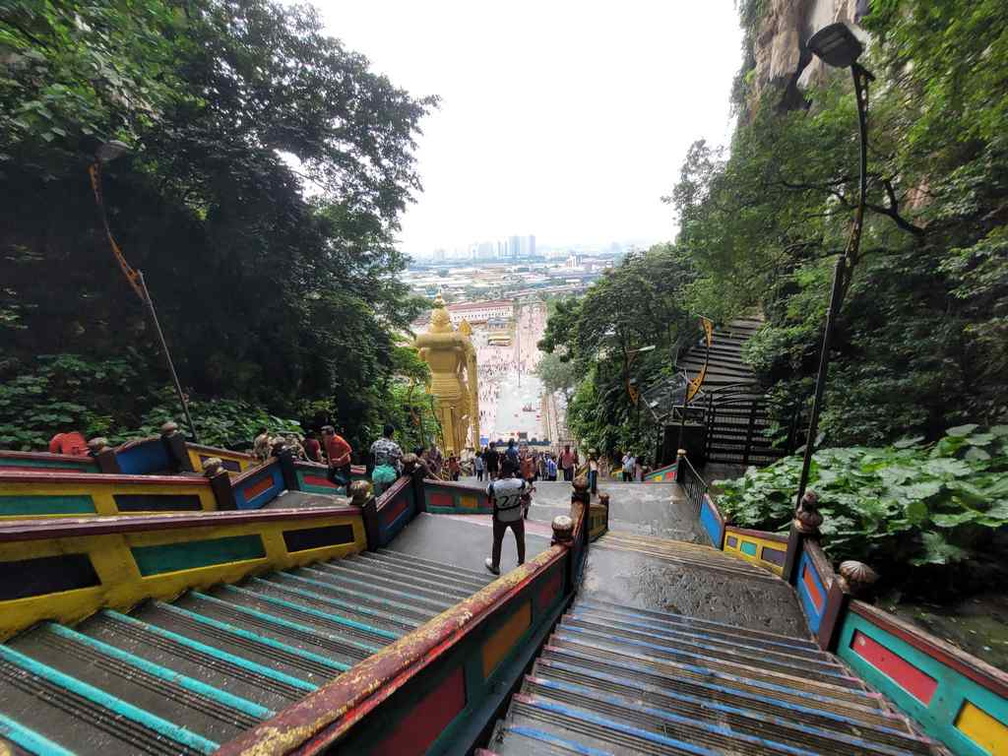
Here, you can appreciate the large cave grand entrance which stands few floors high. It also worth noting the Batu caves is a network of 20 different caves, though not all of them are public accessible or safe to enter. There are also specialty caves such as the Dark cave which you can explore with an experienced guide.
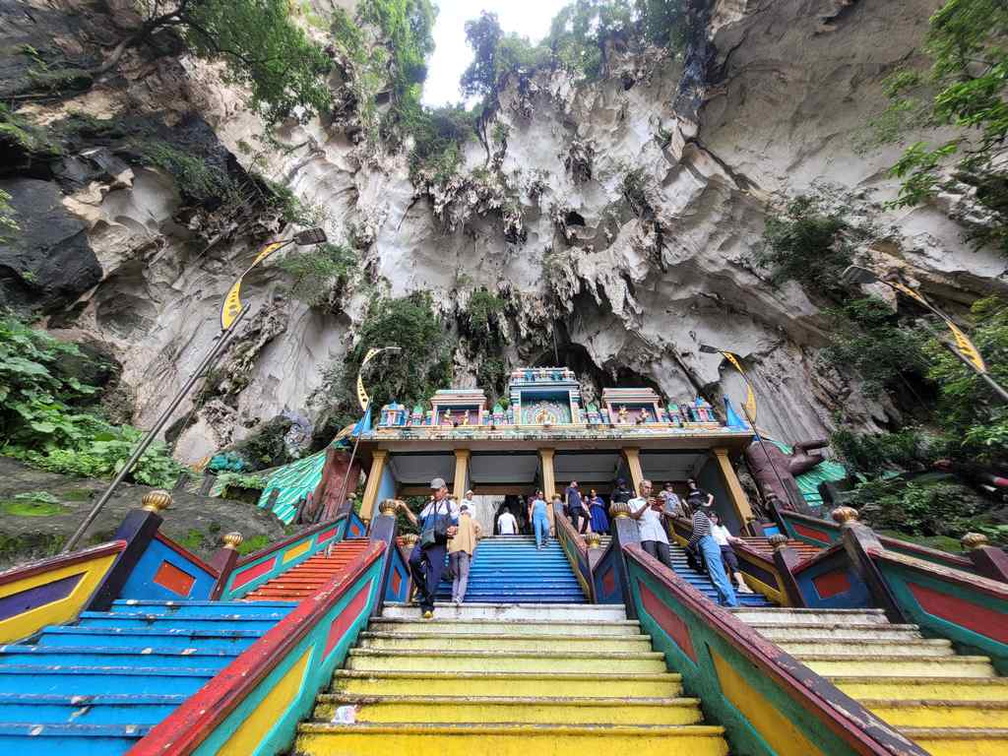
Cave temple and inner halls
Within the cave, the temple is divided into two main sectors, the main hall also known as the Gua Lambong, and the Rift Chamber with a Skylight sits at far end the behind another flight of temple stairs.
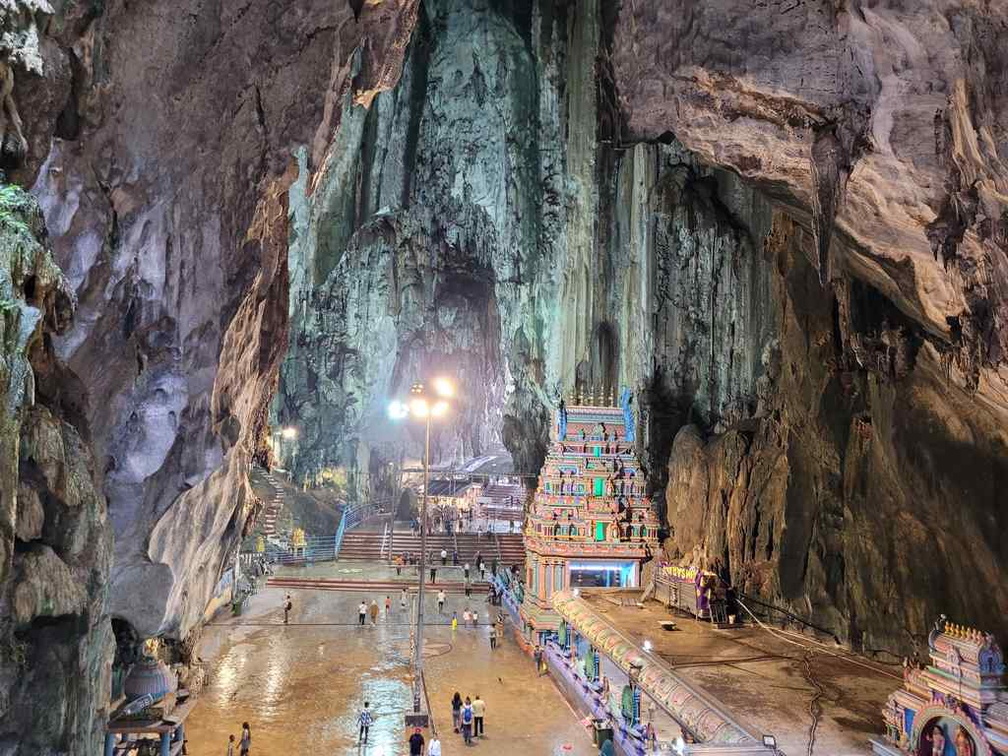
From the main entrance, you have a commanding view of the expanse of cavernous space and tall cave ceiling ahead of you. Which had been turned into a place of worship with several temples residing here.
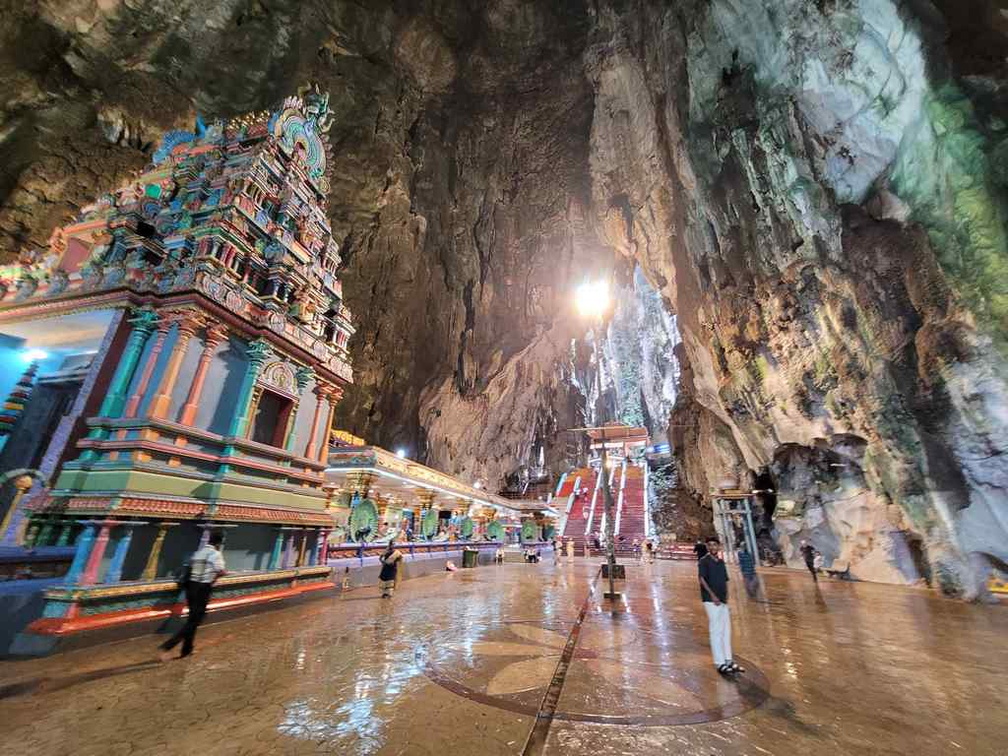
Moreover, the shrine is always buzzing with people with a vibrant cultural atmosphere. You can also see swallows and bats fluttering among the cave walls as well as some monkeys which call these upper caves their home too. The base is properly paved in concrete though there are some wet spots in some areas from cave water. Within, occasional shafts of sunlight creating stunning visuals against the limestone walls.
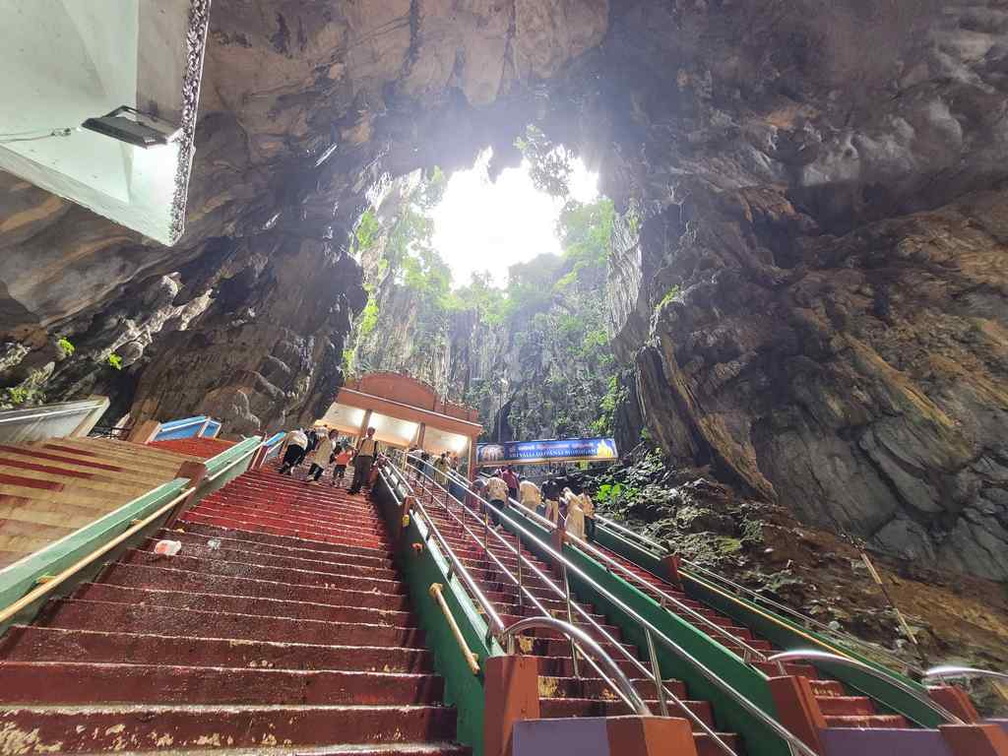
Also, around the entrance of the cave, you find gift shops sell souvenirs and refreshments. The pigeons, wild chickens and monkeys roam freely, often drawing the attention of tourists. The inner temple grounds located at the far end is accessible after climbing another short flight of step.
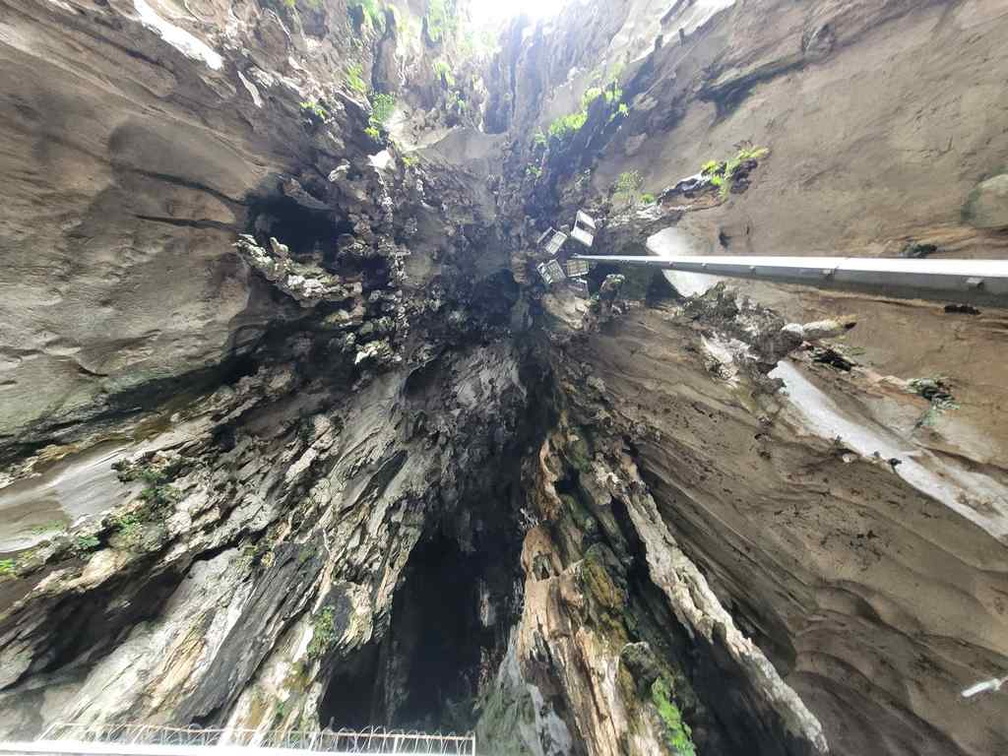
Here, a massive natural rock skylight illuminates this section of the cave, which is naturally lit and does not need artificial spotlights like that in the previous cave.
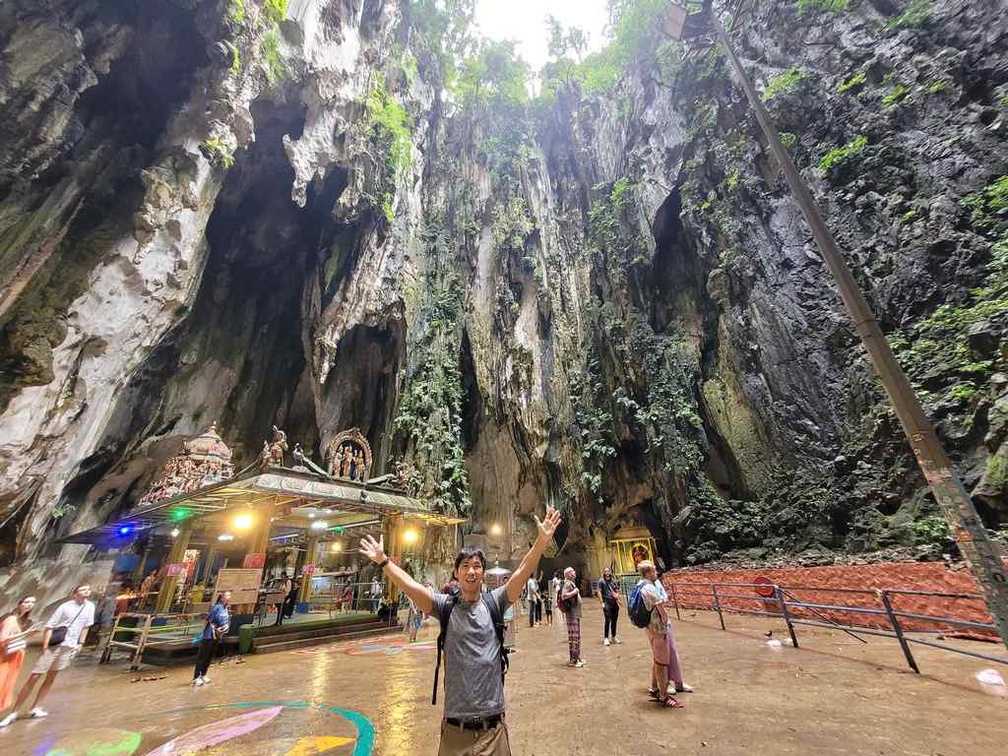
These areas house shrines and temples that are free to enter. Do note that footwear is not allowed inside the temple areas. Also, do note that entry to the main Batu Caves temple is free. It is a place of free worship and the site is open daily from 8:00 AM to 9:00 PM.
Ramayana Cave worth visiting
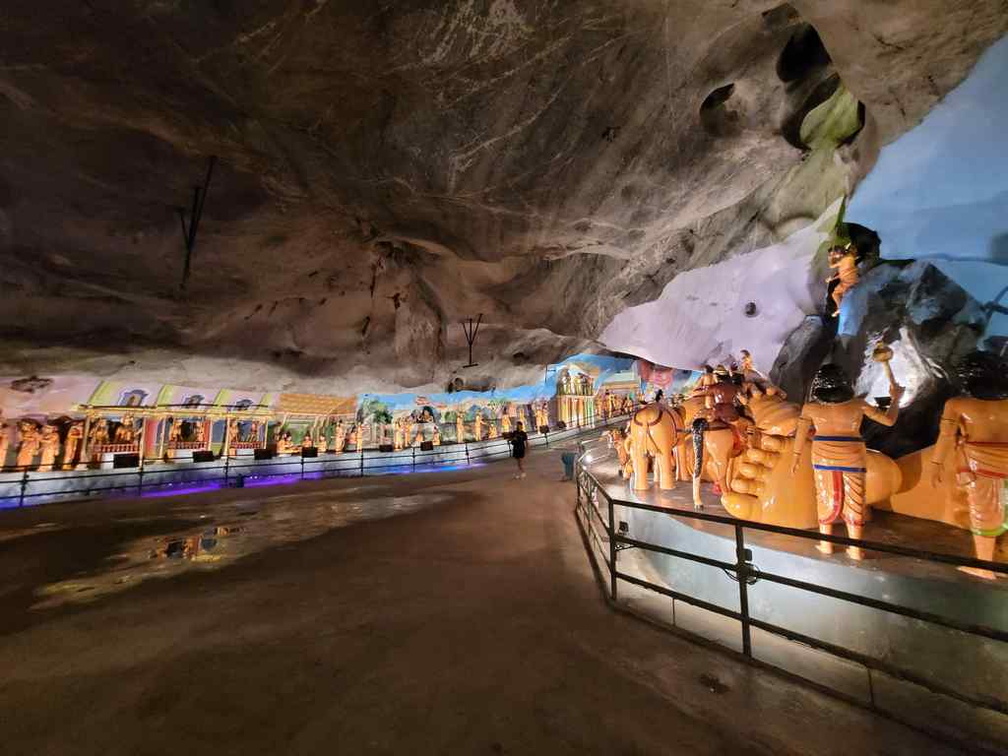
Back at the ground level, there are additional temples and attractions worth visiting. Of the few, the Ramayana Cave gets my recommendation.
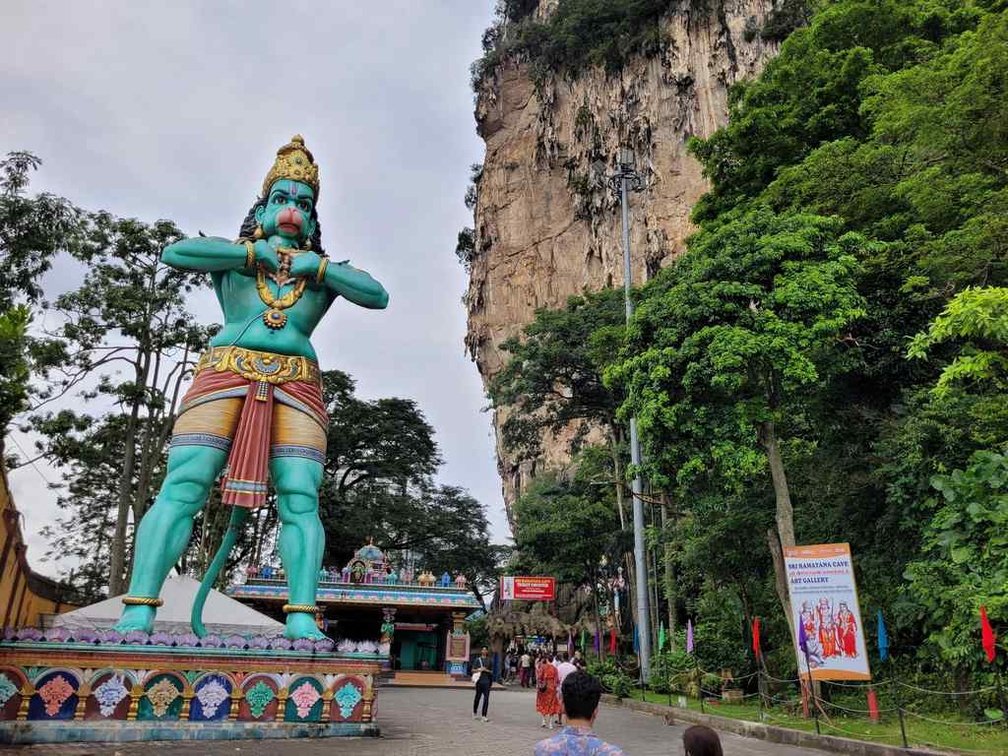
Also, the massive statue of Hanuman, the monkey god greets you standing at the Cave ticketing counter entrance. The Ramayana Cave requires an entry fee of RM15 per person and is open from 8:00 AM to 9:00 PM.
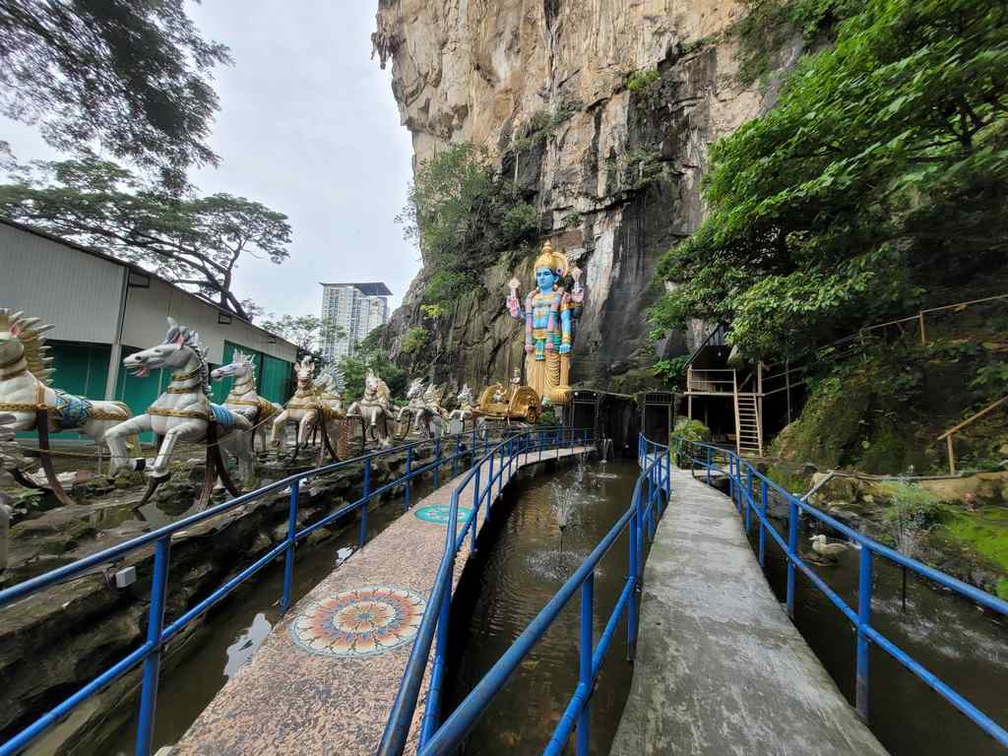
Beyond the ticketing counter, you pass through a small pond area with horses pulling a chariot with a massive statue of Krishna in the background.
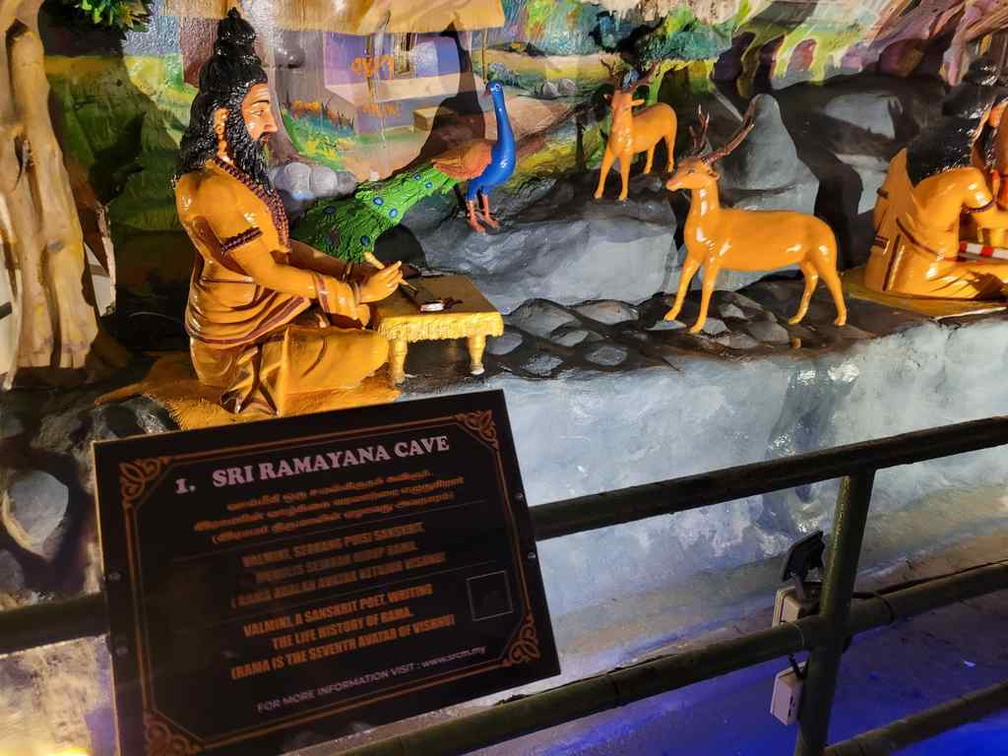
You enter into the cave display which runs in a linear manner with nicely painted statues depicting detailed representations of scenes and stories from Hindu mythology.
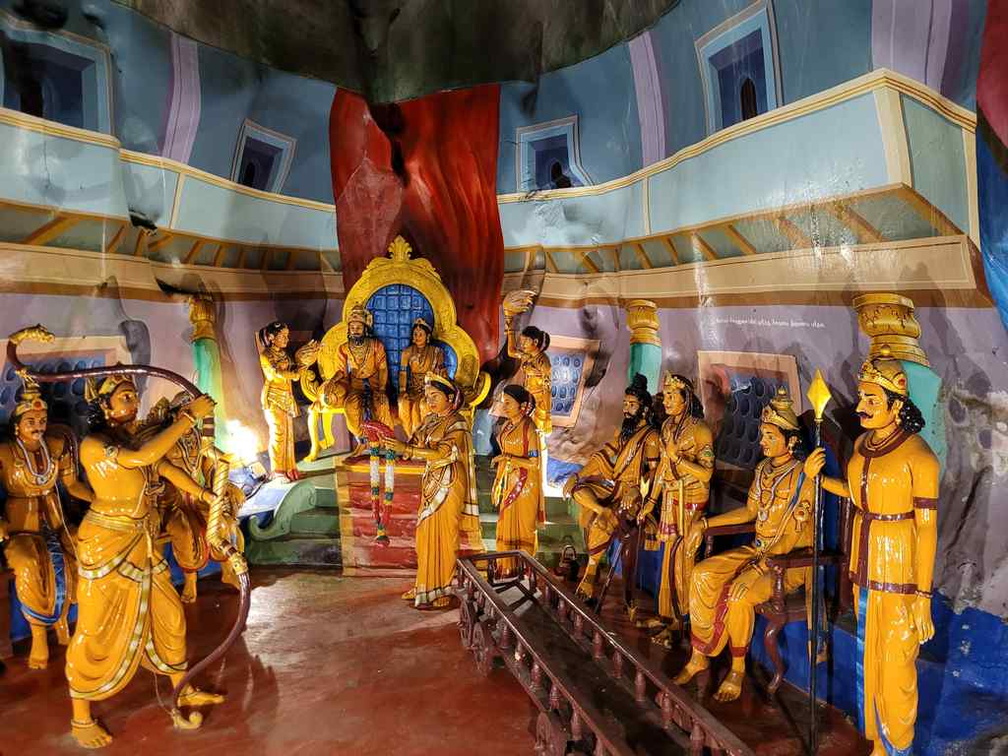
The area is area clean and painted statues are well-maintained with care and precision, making this area a fascinating cultural and educational experience.
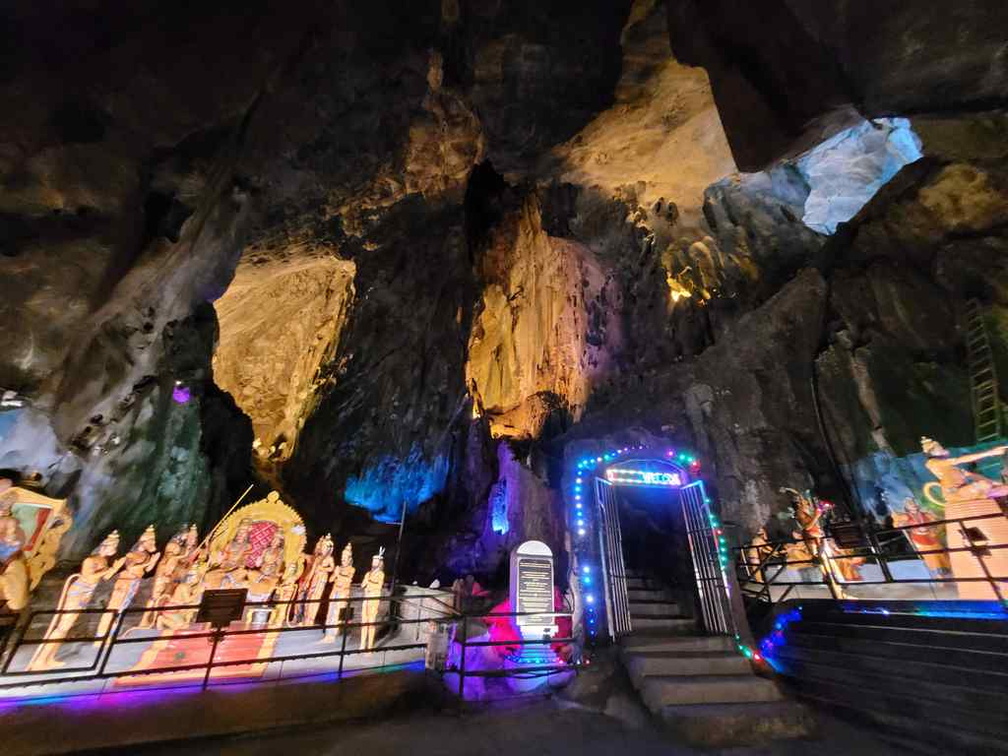
The central attraction in the Ramayana Cave is a scene of the Monkey King at the end of the hall. There is also a small waterfall at the end of the cave, adding to the ambiance, though it appears to be man-made.
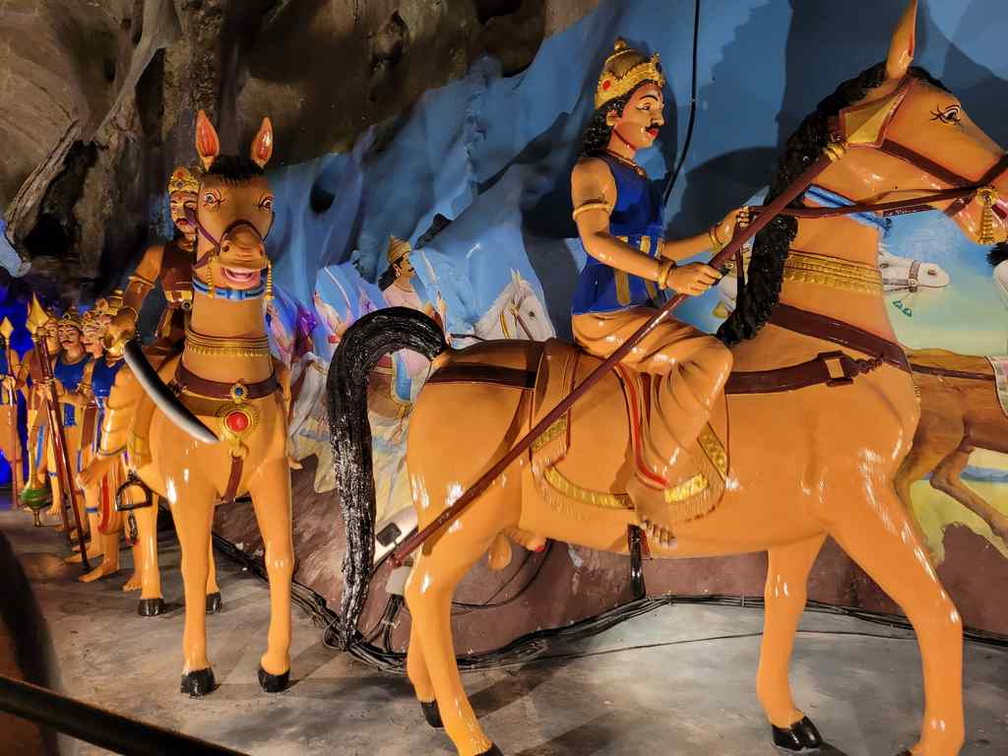
Ramayana meditation cave
Wrapping up your visit within the Ramayana Cave is a vast event and meditation hall. It is accessible at the last part of the cave displays up a set of stairs.
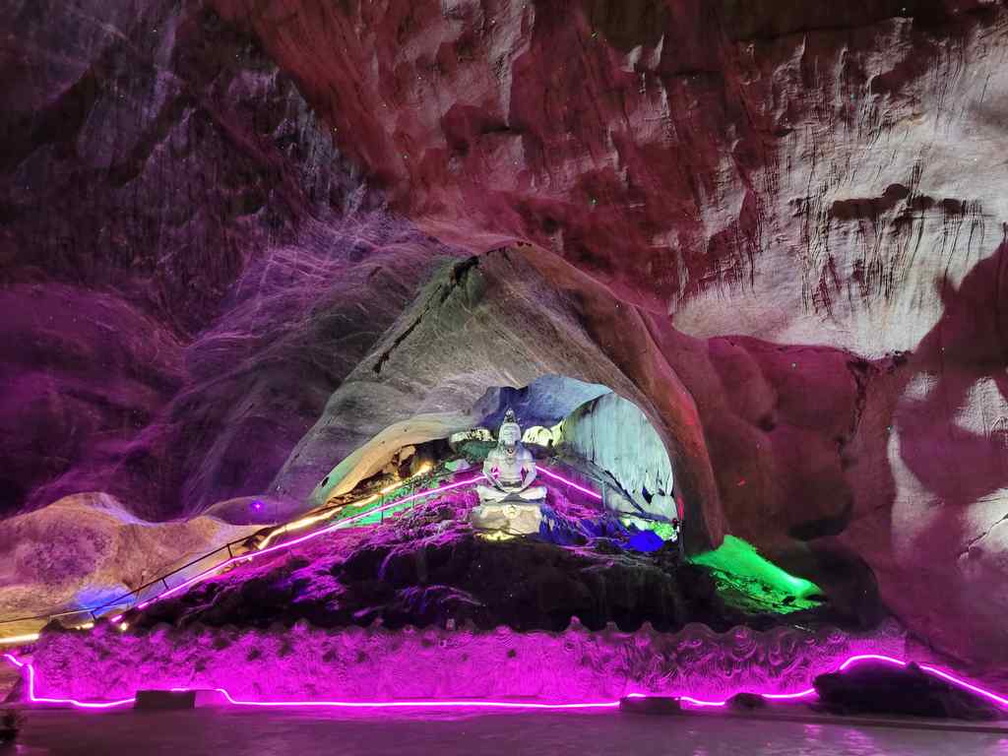
Also, the hall provides a serene space for quiet reflection, with a statue of Buddha and slow flowing water to add to the tranquillity. Water dispensers are available at the entrance and the meditation hall, offering a convenient way to stay hydrated during your visit.
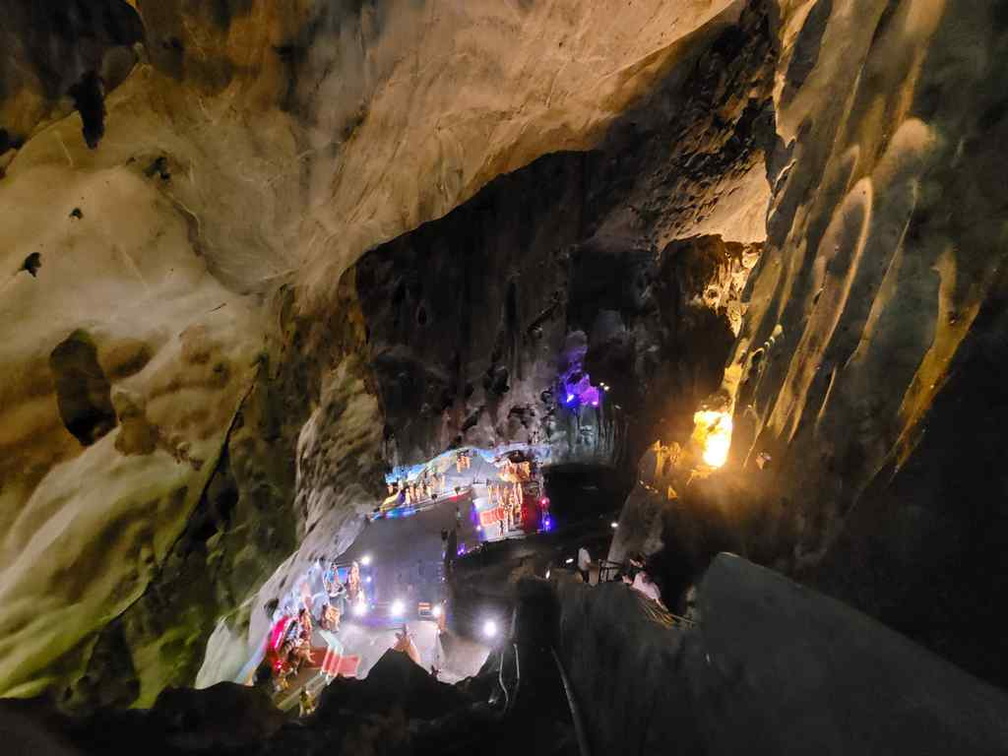
Separately, another attraction at Batu Caves is the Cave villa secondary attraction, which functions as a small private zoo. This area features a man-made garden lake and enclosures for birds and reptiles. Entry to the Animal Cave villa costs RM5 per person, making it one of the more affordable attractions on-site. However, it is worth noting that the enclosures are small, and some visitors may find the conditions less than ideal for the animals. As a result, this attraction may not appeal to everyone.
Wrapping up
The Batu Caves experience typically takes about an hour to explore the main cave and inner cave thoroughly. For those with additional time, the surrounding areas offer more to see and do. Despite its relatively short visit duration, the Batu Caves provide a memorable experience, blending natural beauty with cultural and religious significance.
In summary, the Batu Caves offer a range of sights and activities for visitors. From the striking golden statue of Lord Murugan to the intricate statues in the Ramayana Cave, there is much to admire. While feeding the animals and visiting the Animal Cave may not be for everyone, the overall experience is engaging and worthwhile. Visitors should prepare for a workout climbing the stairs, stay hydrated, and enjoy the unique blend of nature and culture at this iconic destination as one of the things to do in Kuala Lumpur city.


